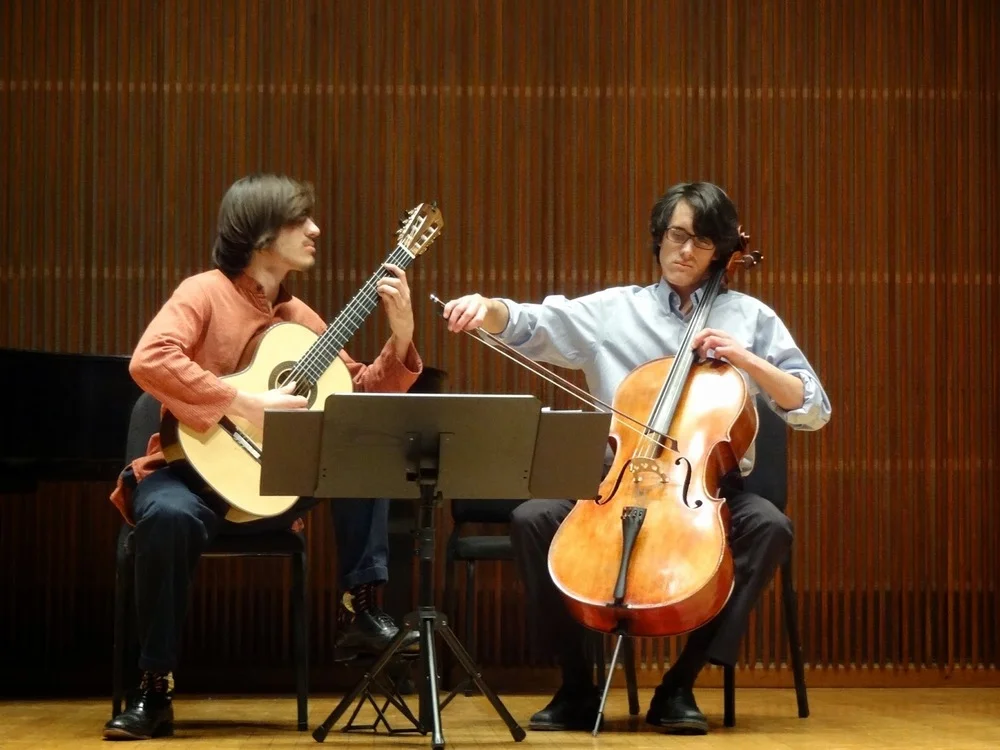What could be more natural, more universal, than feeling inspired to play a particular piece from having heard someone's recording? (In this post, I'll use the term "recording" to mean any means of repeatedly referring to an interpretation, whether on cd, YouTube, Naxos streaming, or any other similar service). We sometimes get attached to them and listen repeatedly, deriving first, the pleasure of discovery, then eventually the pleasure of familiarity.
When we go to learn the piece ourselves, we proceed, full of enthusiasm and score in hand, and begin to establish a relationship with the written music. Those who are exceptionally good at sight reading (or at, simply, reading) will have no difficulty and this process will likely come out well. Others, however, may do a bit of glossing over the written score, taking broad cues from it but leaving many details to their aural memory.
This is where the reference recording comes into play. The player thinks "I know how it 'goes'" and, based on their deep familiarity with the beloved recording, proceed to play it largely by ear. What could possibly go wrong?
(Check out my post on sight reading for more on this important topic).
I was struggling recently with a student who found radically changing the tempo in a Dowland Fancy perfectly natural. I couldn't understand why, no matter how many times we'd reviewed the sections in question together, counting out loud, playing with the metronome, tapping feet, playing the music without embellishment to focus on the core notes and harmonic motion, the student continued to go terribly too slow in one spot and terribly too fast in another. Then it was revealed: this was what he'd perceived to be happening on his favorite reference recording. As far as he understood, those tempo changes reflected how the music was supposed to sound.
Here's the rub: our aural memory is often more powerful, more compelling, than our music notation decoding skills. Yes, the student needed to work at becoming a better reader (don't most of us?). But it is also useful to realize the influence a much-listened-to reference recording can have.
My normal advice on this subject is: never listen to a recording of your piece, however, definitely listen to ten recordings of it (or, say, no fewer than three). If you can absorb the differences on display in each of several recordings, then you will begin to hear the interpretations the performers are playing and to distinguish between the notated score and the expressive (or incorrect) versions available to you. In this way, it also becomes clearer what the current boundaries are in interpreting that particular music.
And it's not just the concern that a student will latch on to a poor recording as his/her model. It's the inevitable telephone-game dilemma. Remember, as children, sitting in a circle with your friends and having the first person whisper a statement to the person next to him, and then each person passes along the statement in the same way until it goes all around the room? The statement morphs into something totally different or even completely unintelligible. We see this all the time. The student, in trying to capture the sense of a favorite performance, misunderstands what is happening, mistaking, for instance, sixteenth notes in a ritard for sixteenth notes moving to eight notes. Then he plays it flatly incorrectly based on this misperception.
We live in an age of plenty where access to recorded music is concerned. There are good, bad and indifferent examples of most repertoire staples readily available. And some absolutely sublime ones as well. It is valuable, even critical, to take advantage of this wealth. But compare many recordings rather than becoming attached to one, and listen critically. And remember that nothing can replace the absolutely indispensable skill of reading music.


